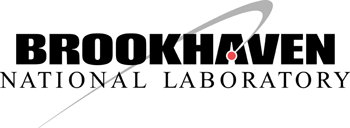An introductory scientific computing course that started out in 2015 as a weekly high school after-school program, developed by the United States Department of Energy's (DOE) Brookhaven National Laboratory, is now part of the curriculum for a new scientific computing minor offered at Adelphi University.

An introductory scientific computing course that started out in 2015 as a weekly high school after-school program, developed by the United States Department of Energy’s (DOE) Brookhaven National Laboratory, is now part of the curriculum for a new scientific computing minor offered at Adelphi University.
With guidance from the nearby Brookhaven Lab, Adelphi has added a new minor in scientific computing—the use of computers to solve real-world science problems. Students enrolled in the minor will begin taking classes this fall, and the hope is that they will join the computing workforce of the future.
“This collaboration between Brookhaven and Adelphi is an example of a national lab teaming with academia to elevate the quality of STEM [science, technology, engineering, and mathematics] training in the United States,” said Noel Blackburn, manager of university relations and DOE programs within Brookhaven Lab’s Office of Educational Programs (OEP). “It will help close the knowledge gap between scientists and science students, increasing the competitiveness of our next generation of professionals for the national workforce.”
“Scientific computing is an urgent need in the scientific community,” said Christopher K. Storm, Jr., Ph.D., associate provost for faculty advancement and research at Adelphi. “As a university, we have an important role and opportunity to address this need by bringing together faculty across the science and computing disciplines to better integrate our curriculum. By partnering with Brookhaven in faculty and curriculum development, we have developed a scientific computing minor that will prepare our undergraduates who are majoring in science to succeed in the scientific community.”
Professors from Adelphi University and Medgar Evers College of the City College of New York (CUNY) and an instructor from Saint Anthony’s High School participated in training for science educators last summer on how to deliver scientific computing lessons aligned to biology, chemistry, physics and environmental science. As a result of this workshop, Saint Anthony’s added a scientific computing elective to its course selections last year, becoming the first private high school in New York state to do so. This year, 40 students are enrolled in the elective.
The impact also extended to the university level. Adelphi has offered an introductory course based on content that Brookhaven National Laboratory technology architect David Biersach developed—“Survey of Scientific Computing”—with 15 students enrolled.
Senior Gerard Boniello, who is pursuing a double major in mathematics and computer science, was one of these students.
 “I had taken a lot of programming classes prior to the class, but some of the logic behind the programs was different than what I’m used to,” said Boniello. “There was a specific way to go about different problems, with no solutions ever really sharing code snippets. The diagrams that we were working with were hard to visualize when we first started coding, but it was very interesting to see how much you can model and simulate with the right tools. We inputted real-world data into the models and saw how variables would manipulate them.”
“I had taken a lot of programming classes prior to the class, but some of the logic behind the programs was different than what I’m used to,” said Boniello. “There was a specific way to go about different problems, with no solutions ever really sharing code snippets. The diagrams that we were working with were hard to visualize when we first started coding, but it was very interesting to see how much you can model and simulate with the right tools. We inputted real-world data into the models and saw how variables would manipulate them.”
“I took the elective to learn about the scientific use of computing and the general applications of computing in bioinformatics,” said Andrew Li, a biology major in his senior year. “I had absolutely no experience prior to this class.”
This introductory course is now part of a scientific computing minor that has been formalized within Adelphi’s Department of Mathematics and Computer Science. The first group of students to pursue the minor—the first of its kind in the state—will begin taking classes in the Fall 2019 semester.
“We are very excited to offer this new minor in Adelphi’s College of Arts and Sciences, which embodies the liberal arts spirit of the University,” said Kees Leune, Ph.D., assistant professor of mathematics and computer science and the lead faculty member on the development of the minor. “The ability to take an interdisciplinary approach to problem solving across science disciplines sets our students up for success early on in their academic careers.”
Salvatore Petrilli ’05, Ed.D., Department of Mathematics and Computer Science chair and associate professor, supported the implementation of the curriculum for the minor. In developing the curriculum, Adelphi received guidance from Brookhaven National Laboratory on the skill sets that are in high demand by modern science. To complete the minor, students are required to take Survey of Scientific Computing along with courses in calculus, computer programming, applied problem solving, statistics and data analysis, and operating systems, as well as advanced courses in computation relevant to their majors.
“The minor allows me to cater my courses to my interests, and the curriculum complements what I’m learning in many of my math and computer science courses,” said Adelphi junior Jennefer Maldonado, who took the scientific computing elective last year and has decided to pursue the minor along with her dual major in mathematics and computer science. “It is a great way to combine my two majors in a creative way while applying my skills in scientific computing in the STEM fields that I do not encounter on a daily basis.”
This summer, through the DOE’s Science Undergraduate Laboratory Internshipprogram, Maldonado will be programming for Brookhaven’s National Synchrotron Light Source II, a DOE Office of Science User Facility. After completing her undergraduate studies, she plans to obtain her Ph.D. in applied mathematics.
“From what I’ve learned, there is a huge demand for students with skills in scientific computing,” continued Maldonado. “Graduating with a minor in scientific computing will allow me to have an edge up over other students who may be applying to similar internships, graduate programs or jobs in the future. I think more schools should really consider following in Adelphi’s footsteps.”
Brookhaven National Laboratory hopes that Adelphi will set an example for other private and public universities to adopt scientific computing in their course and degree program offerings, making students more competitive applicants for educational and career opportunities. Discussions between Brookhaven National Laboratory and other universities about adopting scientific computing in course and degree program offerings are already underway.
“Currently, no university in New York offers a scientific computing major,” said Biersach. “Maybe that will soon change.”
See more of this story on the Brookhaven National Laboratory site.
Brookhaven National Laboratory is supported by the Office of Science of the United States Department of Energy. The Office of Science is the single largest supporter of basic research in the physical sciences in the United States, and is working to address some of the most pressing challenges of our time. For more information, please visit science.energy.gov.
For further information, please contact:
Todd Wilson
Strategic Communications Director
p – 516.237.8634
e – twilson@adelphi.edu